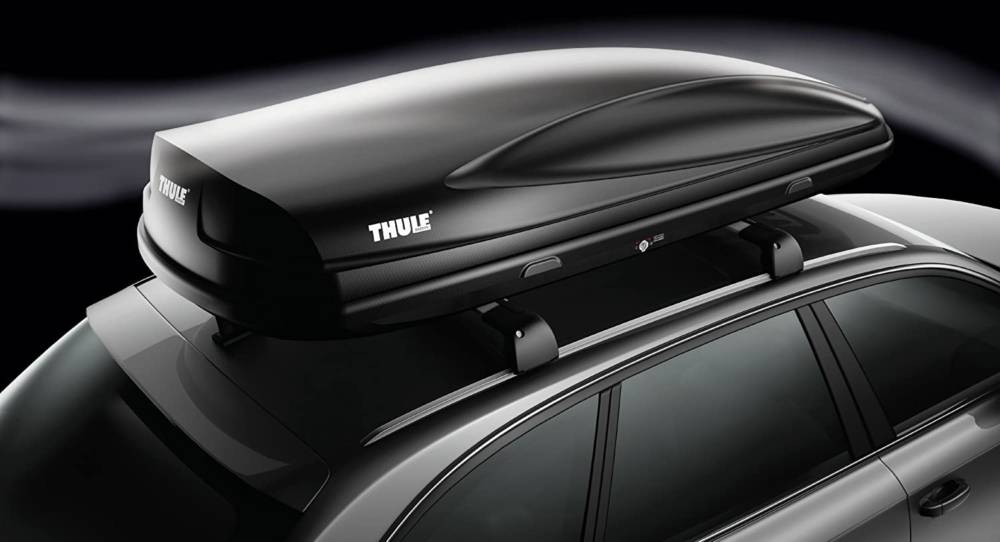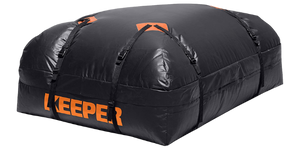If you want to take everything you need on your next road trip, you may discover that your car’s trunk is not large enough to accommodate everything.
Because your trunk is tiny and you can’t fold down the rear seats, maybe.
You might be experiencing this difficulty because you have too much items to pack. Finding more secure storage space is the first step in resolving this issue for whatever reason you may have.
For instance, with the right roof-mounted box, you may use the roof of some vehicles as storage space.
There is a wide range in aerodynamic efficiency across Roof Cargo Carriers. With the aid of this article, you may choose the most aerodynamic roof carrier for your requirements, therefore reducing fuel consumption and improving vehicle performance.
In what ways might boxes be classified?
Generally speaking, there are two distinct roof boxes to consider purchasing. In order to ensure that your goods remain intact and safe during the journey, certain roof boxes come with a sturdy lid.
Packing big or unusually shaped items may benefit greatly from the use of soft boxes, which are purposefully made to be more malleable in terms of form. While each roof box may do the job, certain tasks call for a particular design.
If you want something aerodynamic and are ready to sacrifice room, consider hard-covered roof boxes. In addition to being more secure, these containers are fortified against debris thrown up by passing vehicles, such as gravel and stones.
In contrast, soft boxes are easier to mold and are often much lighter than their hard-sided counterparts. The next time you’re shopping for a vehicle top box, bear this in mind.
What Features Should a Reliable Hard Cargo Box Have?
There are a few things to bear in mind if you choose hard cargo boxes as your solution while searching for aerodynamic roof boxes.
First, depending on size and construction, these roof boxes may weigh up to 60 pounds, which is a lot more than the average soft roof box.
It’s important to check that your vehicle can handle the load of the cargo box plus anything else you want to transport.
Bear in mind that you’ll need a few hundred bucks if you want a solid, durable hard cargo box. After all, nobody like the thought of their possessions becoming broken during a lengthy automobile trip.
As a last step, check to see whether the racks on your vehicle are suitable for the cargo box you’re considering. Your cargo box needs these racks in order to be secured.
What Are the Hard Cargo Box’s Specifications?
When deciding what to store within a sturdy cargo box, it’s important to keep the weight of the contents in mind. The typical load capacity of a high-quality cargo box is roughly 110 pounds, however this number varies widely depending on the buyer’s budget.
These containers are available in a wide range of sizes. Even the smallest boxes have 10 cubic feet or more of capacity, and the larger ones may have up to 20 cubic feet, so you’ll have plenty of room for all of your things.
Last, ensure sure your hard storage box is tight and secured so it won’t open and pour out into the road, even at highway speeds.
Thule Force is a well-rounded robust roof box. For more information on boxes, see our buying guides.

Which Features Should a Good Soft Cargo Box Have?
If you’re looking for aerodynamic roof boxes but think a soft cargo box would be preferable, there are several factors to consider. These roof boxes may not be as sleek profile as the solid cargo boxes, but they are nevertheless built to minimize wind resistance and noise pollution without sacrificing storage space or security.
Soft cargo boxes often provide more installation flexibility than hard ones since they don’t always need racks to hold them in place. There are a variety of options for keeping the soft luggage box secured to the roof of your vehicle.
Roofs without racks, side rails, or cross bars are the primary target for the most common installation techniques. Straps for fastening the box to the automobile are usually included with soft cargo boxes, and other security features may usually be purchased separately.
Careful consideration of the bag’s dimensions is also required, as certain styles won’t fit in vehicles of a certain size. Any vehicle with a cargo capacity more than 15 cubic feet is generally considered a full-size sedan, SUV, van, or similar big vehicle. However, 11 cubic feet is normally small enough to suit any automobile, excepting tiny cars.
If you want more details, check out our Soft box tutorial.
What About a Soft Cargo Box’s Specifications?
Those who are used to the durability of hard cargo containers may be wary of the change in material. This is a reasonable fear, but be assured; everything is OK. A soft cargo box’s components will be very different from those of a hard cargo container. Most soft cargo containers weigh 7 pounds or less, with the average being about 10 pounds.
While the fabric may not be very tough, it is designed to withstand the elements without deteriorating in the face of water, sand, snow, or extreme temperatures. There is far less cause for concern over the cost of these cargo containers. Most soft cargo containers cost less than $100, and sometimes much less. This includes high-quality, aerodynamic, waterproof options.
Finally, the dimension of these boxes may simply be adapted to suitcases. For instance, if you’re taking your family on a vacation, and you decide to err on the side of caution by renting an 11-cubic-foot cargo box, you’ll have plenty of room for four medium luggage.
Consider the RoofBag family of cargo bags if you’re shopping around for aerodynamic roof boxes but can’t decide which soft one is ideal for your vehicle. These roof boxes are built to withstand the elements, to be aerodynamic, and to remain firmly connected to your vehicle.



![The [year] Thule Roof Box Buyers Guide best thule roof boxes](https://www.rackstrapgo.com/wp-content/uploads/2022/08/best-thule-roof-boxes-1-150x150.jpg)



